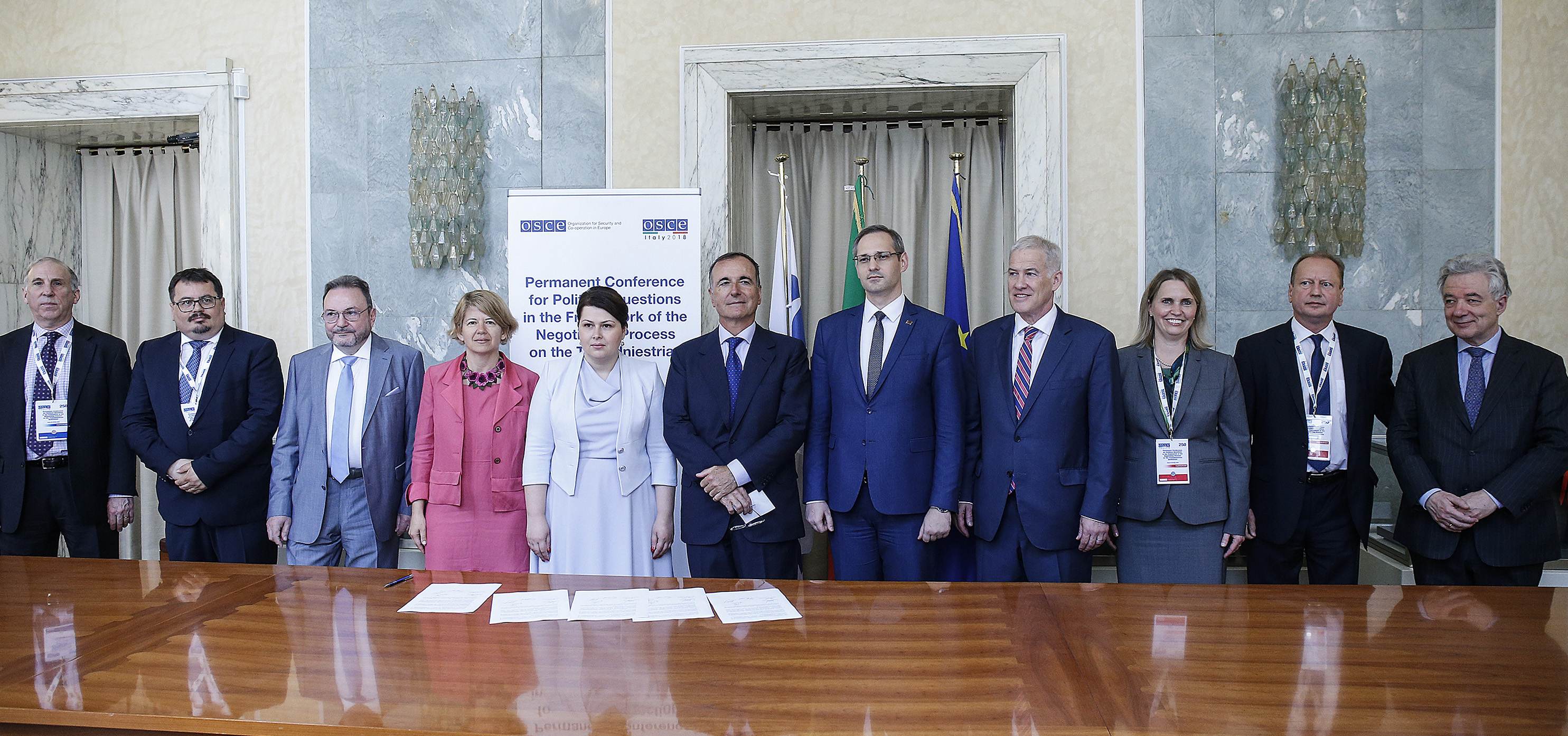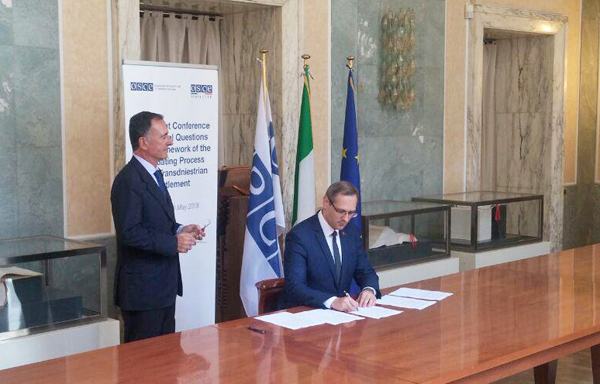The first round of negotiations in the 5+2 format this year concluded in the capital of the Italian Republic.
On May 29-30, a regular meeting of the Permanent Conference on Political Issues in the Framework of the Pridnestrovian Negotiation Process was held in Rome, followed by signing of the Protocol. The Pridnestrovian side was represented during the international discussions by the delegation of the PMR Ministry of Foreign Affairs headed by political representative from Pridnestrovie, Minister of Foreign Affairs of the PMR Vitaly Ignatiev.
Within the framework of the meeting, in accordance with the agenda, the sides analyzed implementation of the agreements reached within the negotiation process over the past six months. They identified areas where significant results have already been achieved, including functioning of Romanian schools on the territory of Pridnestrovie, apostillization of Pridnestrovian higher education documents, and traffic on the bridge over the Dniester River near the villages of Bychok and Gura-Bykului. At the same time, the sides had in-depth discussion over parameters of implementation of other agreements reached, drawing attention to existing difficulties, including the need for international technical and other assistance.
“The discussion was not easy, but we managed to approach concrete results. I believe that the priority task now is to solve problems for the benefit of people, which involves removing all forms of limitations, restrictions and other elements that interfere with normal living, doing business and developing,” said Vitaly Ignatiev during an official briefing for the media following the meeting.
According to him, the agreements of last November, as well as the Protocol Decision on participation of vehicles from Pridnestrovie that do not carry out commercial activities in the international road traffic confirm that the parties can achieve results “if there is political will and strict compliance with the agreements concluded”. The diplomat also noted that the current Permanent Conference meeting and following Protocol brought ‘added value’ to earlier agreements, which will positively affect people’s lives.
At the meeting, participants outlined future actions in regards to other relevant aspects of the dialogue, where specific agreements have not yet been reached. In this context, the parties supported rhythmic work of all negotiating mechanisms, including the 5+2 format, with an emphasis on interests of the population. Taking into account the agreements concluded at the previous two 5+2 meetings in Berlin and Vienna, the Pridnestrovian side initiated development of a mechanism to guarantee implementation of decisions reached in the negotiation process.
“Guarantees are a really important element for negotiations. We would like to develop a comprehensive and effective guarantee mechanism. It is gratifying that some elements of this mechanism have been consolidated in the Rome document. This creates additional confidence in the negotiations among population and international participants,” the PMR Foreign Minister said.
Vitaly Ignatiev welcomed that the parties move beyond the achieved results and are looking for opportunities to solve specific social, humanitarian and economic problems. In particular, he stressed that the Rome Protocol reflected that the parties define new areas of work and facilitate stable functioning of expert (working) groups, in particular, on the aspects of interbank cooperation. In this context, the PMR Foreign Minister told about already held meetings of relevant specialists, where they discussed problems arising in the context of functioning of the joint Moldovan-Ukrainian control at the Kuchurgan checkpoint, including delivery of medicines to Pridnestrovie and customs cooperation.
Concluding his speech, Vitaly Ignatiev noted that during that meeting Pridnestrovie again spoke for the rhythmic and intensive work in the 5+2 international format. “We also proposed to determine the date of the next Permanent Conference meeting...” because there are clear deadlines for implementation of specific decisions, including launch of the procedure for registering vehicles in the Vehicle Registration Offices. We expect that the honoured co-mediators and guarantors will be ready for this meeting in the autumn, as I am sure we will have something to discuss in the framework of this discussion,” the Minister concluded.
Photo credit: OSCE









